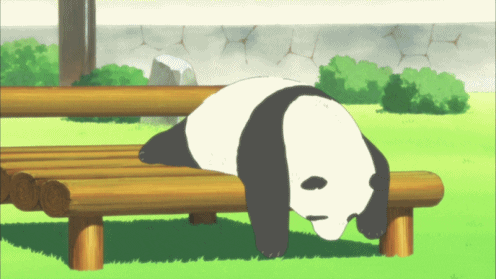Japanese Onomatopoeia Guide
If you aren't familiar with Japanese onomatopoeia (or any onomatopoeia for that matter) here is a quick introduction. Onomatopoeia is the word for when we take a sound and make a word out of it. In English, this is words like BOOM! SLAP! or HAHAHA! The spelling of these words is based on the sound that the action makes. Every language has onomatopoeia, but in every language they are slightly different. For instance, in many languages, the onomatopoeia for laughing isn't "hahaha" but is often "kkkk" in Asian languages or in Spanish, "jjjj." This may seem strange to English speakers, but of course it makes perfect sense to the native speaker! The Japanese seem to like onomatopoeia even more than other languages (they have over 1,000!) so we are devoting a whole post to teaching you the most common Japanese onomatopoeia you might find. Japanese onomatopoeia aren't just written, but they are also crucial to speaking and sounding fluent. There are 3 types of onomatopoeia you will learn in Japanese. 擬声語 (giseigo, animal and human sounds) like MOO! or YAAAWWWWN and 擬音語 (giongo, inanimate objects and nature sounds) both exist in English. The harder part about Japanese is that they have onomatopoeia that describe mental states, movements, and even feelings. Since we don't have words for these in English they can be a bit harder to learn. 擬声語 (giseigo) Animal and human sounds These are mostly what you will think of in English like MOOO! or ACHOO! or Sluurrrrrp. 擬音語 (giongo) Sounds made by inanimate objects and nature What sound does the wind make? WOOOOSH! A beating heart? Thump, thump, thump. 擬態語 (gitaigo) Describe conditions and states (things that do not make sounds) Gitaigo are onomatopoeia that we do not have in English. They describe feelings or states of being that make no sound at all! To break down the names of the various onomatopoeia we can see the kanji 擬 means mimic + (insert type of sound) + 語 (kanji for word or speech). You will see all the onomatopoeia written below in both hiragana and katakana. While there isn't a hard and fast rule, usually actual sounds (like animal noises or doors slamming) are written in katakana and soft sounds (like ones that describe emotional states) are written in hiragana. Of course this isn't a real rule, and you can see any of these sounds written either way depending on the context!
Japanese Onomatopoeia Forms:
Double Form: にこにこ (niko niko) -> For the double form, it is usually used as an adjective. For instance, "彼はいつもにこにこしている" meaning "He is always smiling" BUT it can also be used as an adverb to verbs that follow them. TO Form: にこっと (nikotto) -> For TO form, it is mostly used an an adverb to verbs that come after. For example, "彼はにこっと笑った" (For this one there isn't a literal translation because にこにこ is a representation of sounds/state of being) but this can be translated as "He pleasantly smiled" as "にこにこ" always has positive meanings. RI Form: にこり (nikori) or にっこり -> Nikori can also be used as an adverb just like nikotto. So what is the difference between nikotto and nikori? Not much really, they are interchangeable and mean pretty much the same thing! "彼はにっこり笑った" meaning "He pleasantly smiled" ---
OK! Now we're ready to learn some onomatopoeia and watch some fun anime gifs while we're at it!---
擬音語 - Sounds made by inanimate objects and nature
どきどき/ドキドキ - dokidoki sound of throbbing 
ごぼごぼ/ゴボゴボ Gobogobo Gurgling sound 
ぺらぺら/ペラペラ - perapera - sound of flapping in the wind 
ざあざあ/ザアザア - zaazaa - sound of rain falling 
パリパリ — Paripari - crunchy; crisp
ずどん/ズドン - zudon - THUD! BANG! 
へろへろ/ヘロヘロ - herohero - flimsy plastic flapping around - im tired, im beat
くしゃくしゃ - Kushakusha - Crumpling sound of paper
ギシギシ/ぎしぎし - Gishi gishi - Squeaking noise of beds or old floors

ぱちぱち/パチパチ - pachipachi - snapping closed, sharp pop or ping like pachinko!
擬態語 - Describe conditions and states
ラブラブ— Raburabu - Lovey dovey; head-over-heels in love
Often used to poke fun at classmates! 
にこにこ/ニコニコ - nikoniko - the sound a smile makes!
きらきら/キラキラ - kirakira - twinkle twinkle (water, gemstones, or stars)
オタオタ/おたおた — Otaota - shocked speechless
じー/ジー jii - staring and motionless
そわそわ — Sowasowa - fidgety; restless; have butterflies from excitement or nerves
うとうと - Utouto - To doze off

ちくちく - Chikuchiku — prickly pain; needle-like pain
ぎゅうぎゅう - Gyu gyu - Jam-packed like a train during rush hour
[caption id="attachment_2192" align="alignleft" width="514"] Image Credit Yeow Kwang Yeo[/caption]
Image Credit Yeow Kwang Yeo[/caption]
おろおろ - Orōro — too flustered to think or move
ワクワク/わくわく - wakuwaku — Excited; thrilled; to get nervous/anxious from excitement
うずうず — Uzūzu - to itch with desire; squirm, struggling to resist an urge
イライラ/いらいら — irairai - edgy; testy; ticked off (especially when being made to wait)

ごろごろ — gorogoro - stay idle; laying around; loaf around
つんつん — Tsuntsun - to be cross; cranky; aloof
クラクラ/くらくら — kurakura - feel dizzy; light-headed
ねばねば — Nebaneba - sticky; gooey
ぞくぞく - Zokuzoku Excited; to have an adrenaline rush
うとうと — Utōto - drowsy; nodding off
のろのろ — noronoro - Sluggishly, lazily, draggingly
きびきび - Kibikibi - Energetically
ぬるぬる - Nurunuru - Slimy like a fish out of the water
びっくり — Bikkuri thrilled; surprised; frightened; shocked
ズキズキ/ずきずき - zukizuki — throbbing pain
ぐっすり — Gussuri - soundly sleeping
すやすや — suyasuya - sleeping peacefully
くたくた — kutakuta - weak with exhaustion; worn out; beat tired
ぐしゃぐしゃ - Gushagusha - Messy hair or clothes
擬声語 Human & Animal Sounds
ガブガブ — Gabugabu - gulp vigorously; swig 

ごくごく — Gokugoku - gulp down a drink; drink in long gulps 
ズルズル — Zuruzuru - slurp 
がつがつ/ガツガツ — gatsugatsu - eating ravenously; devour
ぺこぺこ — Pekopeko - Be hungry; starving; famished

ぱくぱく/パクパク— Pakupaku - heartily eating; quivering lips. This is also the origin of where Pac-Man came from!

むしゃむしゃ — mushamusha - to munch or to chomp on something 
ちびちび — Chibichibi - to nibble on food; to sip a drink
がみがみ/ガミガミ — gamigami - nagging (loudly); scolding
ぺらぺら/ペラペラ — perapera - Speaking fluently 
ぶつぶつ — Butsubutsu - grumble; muttered complaint 
はきはき/ハキハキ — Hakihaki - unhesitating; talk clearly and briskly 
もぐもぐ/モグモグ - mogumogu - chewing food, also mumbling 
Animal Sounds
ワンワン — wan-wan
ウォーッ - U~ō~tsu
ニャーニャー - Nyānyā
ゴロゴロ - Gorogoro
Purr (cat), but in hiragana ごろごろ "to be lazy" 
モーモー - momo
ヒヒーン - Hihīn
ケロケロ — Kerokero
ホーホー - Hōhō
チチチ - Chichichi
チュンチュン - Chunchun
リンリン - Rinrin
チュウチュウ - Chūchū
ブーン/ぶーん - Būn
Buzz (bee), also used for cars 
ブーブー - Būbū
Here are a few more as well...can you find some anime or manga that shows these 擬態語? Share it in the comments!
しーん/シーン - shiin - the sound of silence In manga this is most often used when someone tries to say something funny and it isn't funny, to describe the sound of no one laughing! こそこそ - Kosokoso - Sneakingly; secretly ねばねば - Nebaneba - Sticky like okra or raw egg ぱさぱさ - Pasapasa Dry; lacks moisture ぐずぐず - Guzuguzu - To procrastinate; act slowly しくしく — Shikushiku - dull pain; gripping pain This is also used when someone is crying ぐちゃぐちゃ — Guchagucha - pulpy; soppy; soggy ぼそぼそ — Bosoboso tasteless, bland, and dry; muttering under your breath









































